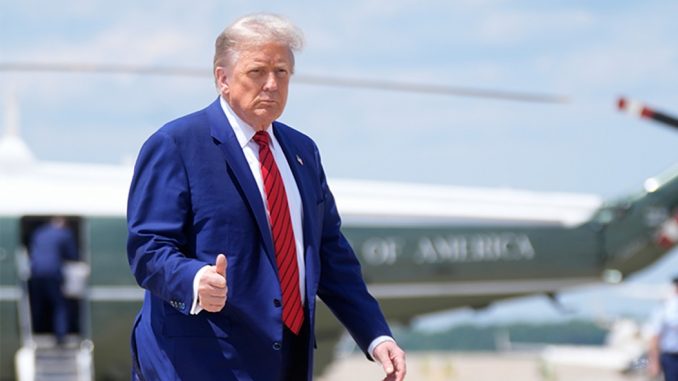
AP Photo/Manuel Balce Ceneta
| Published June 21, 2025
📰 IRAN’S DEFIANT DECLARATION: A HIGH-STAKES MISTAKE?
📌 Context: Public Show of Defiance
Iran has issued a fiery new warning to the United States and its Western allies, declaring that any interference in the growing conflict between Israel and Iran will trigger a “full-scale confrontation” with potentially devastating consequences. Delivered through its foreign ministry, the June 20, 2025 statement signals a sharp escalation in rhetoric as Tehran doubles down on threats while walking away from nuclear negotiations. As tensions surge across the Middle East, the statement may not only heighten fears of regional war—it could also deepen Iran’s diplomatic isolation and justify stronger Western responses.
🚨🚨🚨BREAKING: Talks with Iran in Geneva today have failed. Iran continues to REJECT giving up its ability to make nuclear weapons & the nuclear fuel cycle. Asked by WSJ if Iran will negotiate further with the U.S., Tehran’s FM says “NO.”
— Josh Block (@JoshBlockDC) June 20, 2025
🔍 Why This Statement Could Be Self-Defeating
-
Isolation, Not Deterrence
The belligerent rhetoric may alienate moderate Gulf states and European allies already urging restraint. British and French envoys are pressing for de-escalation and nuclear arms curbs, not military escalation . -
Strategic Miscalculation
Khamenei’s threat of “irreparable damage” targeted at the U.S. and its partners might backfire—by justifying deeper American involvement. Iran risks validating Western fears of an emboldened, aggressive state. -
Domestic Political Fallout
Inside Iran, public sentiment is turning. Analysts note that many citizens, particularly in Tehran, are publicly fatigued by the war — some even chanting “Death to Khamenei” during strikes -
Undermining Diplomatic Channels
With Iran formally walking away from nuclear negotiations, the statement burns further bridges. European nations pushing for a peaceful resolution are now left with fewer levers of engagement.
 Implications
Implications
-
Risk of Full-Scale Regional War
Iran’s warning raises the stakes, potentially pulling in the U.S., Israel, Gulf states, and proxy forces into a multi-front military conflict. -
Collapse of Diplomatic Channels
With Tehran rejecting further nuclear negotiations and issuing public threats, pathways to peaceful resolution are shrinking rapidly. -
Justification for Western Retaliation
Iran’s aggressive tone could backfire by giving Israel and the U.S. a green light—politically and militarily—to act more decisively. -
Strained EU and Gulf Relations
European nations and moderate Arab allies may view Iran’s stance as reckless, prompting tighter sanctions and stronger regional military cooperation. -
Domestic Instability in Iran
Escalating conflict rhetoric may worsen public dissatisfaction in Iran, where citizens increasingly blame their leadership for provoking war. -
Global Energy and Economic Impact
Threats to stability in the Persian Gulf could drive oil prices up, impact trade routes, and trigger market volatility worldwide.
💬 Overall Takeaway:
Iran’s defiant statement may have been intended as a show of strength, but it risks isolating the regime further at a moment when diplomacy is desperately needed. By threatening the West and slamming the door on nuclear talks, Tehran isn’t just raising the specter of war — it’s narrowing its own strategic options. The message, couched in bold language and brinkmanship, may strengthen hardliners at home, but it also hands its adversaries a justification for forceful responses. In the court of global opinion, this kind of posturing often backfires, especially when it escalates an already volatile situation. As tensions rise, Iran may soon find that provocation comes at a far higher cost than restraint — politically, economically, and militarily.
SOURCES: TOWNHALL – Iran Just Made a Statement That Won’t End Well for Them
THE WALL STREET JOURNAL – Iran Remains Defiant as Pressure Builds to End Nuclear-Fuel Enrichment
TIME – Iran’s Supreme Leader Calls Out Trump, Threatens ‘Irreparable Damage’ If U.S. Joins Israeli Conflict
FINANCIAL TIMES – The implosion of Iran’s ‘no war, no peace’ strategy





Be the first to comment